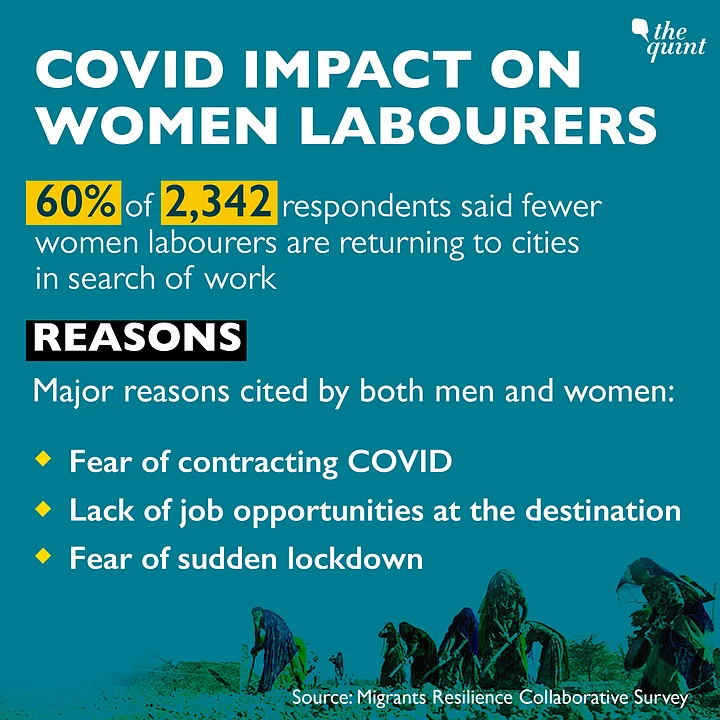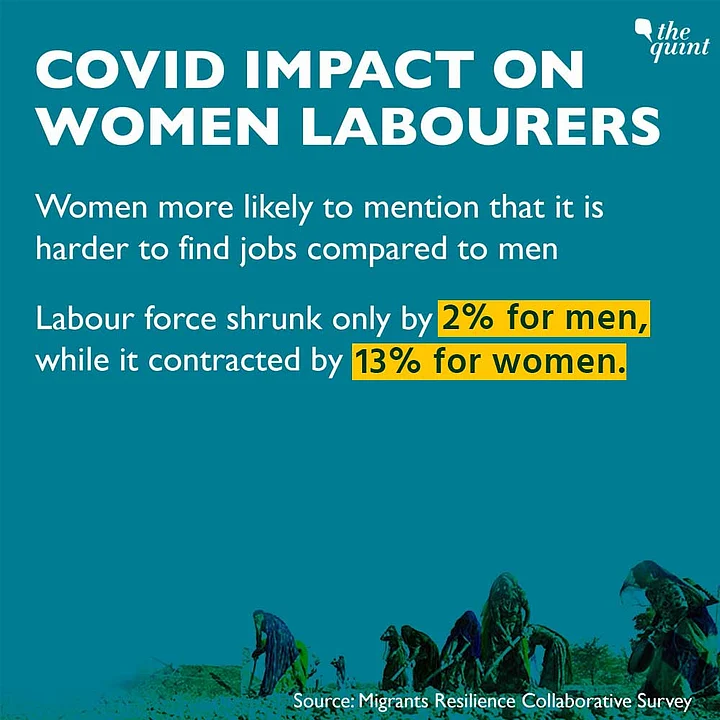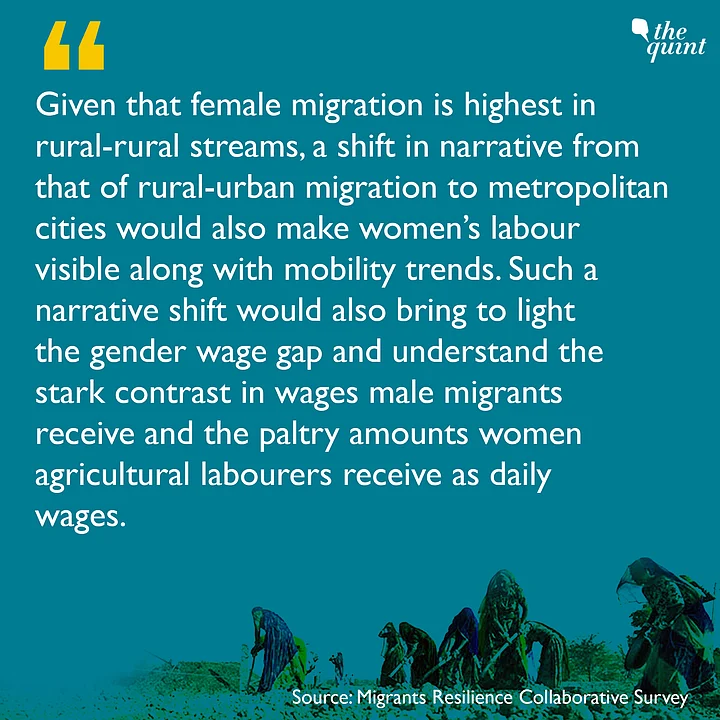Fewer women labourers are migrating back to cities in search of work as compared to pre-pandemic times, revealed a survey published by Migrants Resilience Collaborative in June, revealing a gender gap in migration trends.
At least 57 percent of the 2,342 respondents said that fewer workers are migrating to cities, while 60 percent mentioned that fewer women are returning to cities. The survey also revealed that while the labour force shrunk only by two percent for men, it contracted by 13 percent for women.
The gap in women’s mobility is characteristic of the poor shape of the economy, where women are getting pushed out of the labour market, as they are replaced by men who have lost their employment, the trends in the survey titled 'Voices of the Invisible Citizens II' indicated.

The Big Findings
These indicators are likely to have a much deeper negative impact on nutrition, body strength, immunity, and mental health, making the workers prone to falling ill during the time of the pandemic, the survey said. Major reasons cited for a decrease in migration – by both men and women – are fear of contracting COVID, lack of job opportunities at the destination, and fear of sudden lockdowns.
The workers who continue to migrate are often landless and homeless at source, those without ration cards at source (who move as a family in order to minimise expenses), elderly/ women with smaller children, women as helpers to husbands, the survey said.
The survey also indicated a clear preference for inter-state movement, as the majority of survey respondents, both at destination and source, mentioned inter-state migration as their preference (45 percent and 54 percent, respectively). Further, 33 percent of respondents at the source reported that people were moving within their districts for work.

Shift To Rural-Rural Migration Among Women
Again, there is a clear gendered trend when it comes to the intra-district movement. While 37 percent of women reported they were moving within the district compared to 20 percent of men.
This survey called for a deeper focus on rural-rural migration and short-distance migrations.

Ease of Finding Work for Women
At least 75 percent of women and 73 percent of men reported that it has become more difficult to find work as compared to pre-pandemic days.
“Earlier, if 10 people returned without work from this chowk, now it has become 15 to 20 workers on a daily basis,” the survey stated.
It was found that women are finding it more difficult to look for work in comparison to men due to safety concerns.
Women Labourers and Pandemic
According to a UN Women’s report, by 2021 the pandemic was expected to broaden the gender poverty gap. Compared to November 2019, the labour force has shrunk by 13.5 million workers (6.8 million men, 6.7 million women) by November 2020.
India has one of the highest ratios of the time spent on unpaid care work by women, as compared to men. The negative consequences of the pandemic on women are wide and deep, said a survey by the National Statistical Office.
(At The Quint, we are answerable only to our audience. Play an active role in shaping our journalism by becoming a member. Because the truth is worth it.)
